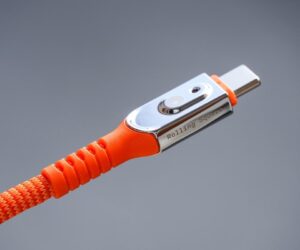Saint Peter’s basilica at dusk. Vatican city, Rome
The rapid advancement of artificial intelligence presents a significant dichotomy: immense technological potential coexisting with a subtle, yet notable, erosion of human connection and agency decay. As AI seamlessly integrates into the fabric of daily life, from optimizing logistics to enhancing productivity, its pervasive influence has inadvertently fostered echo chambers and fragmented societal discourse, extending the critical challenge beyond mitigating dystopian AI scenarios to safeguarding the intrinsic qualities that define our humanity. This concern was articulated on May 10, 2025, by the newly elected Pope Leo Prevost. His Holiness issued a poignant warning against the “unfettered pursuit of technological advancement without a corresponding deepening of human wisdom and ethical discernment.”
A Papal Call For Ethical AI
The Pope’s statement underscores a fundamental truth: AI must serve humanity, not diminish it. This may serve as a clarion call for a global commitment to ensuring that AI upholds human dignity and fosters genuine connection, thereby redirecting the current trajectory towards a future that genuinely elevates the human spirit. Ultimately, the old dictum still stands – Garbage in, garbage out. We cannot expect the technology of tomorrow to be better than the humans of today. Values in, values out. Which ones do we choose?
The Rise Of Prosocial AI?
The Pope’s message is in sync with the trend of prosocial AI. This emerging philosophy advocates for the intentional design and deployment of AI systems that explicitly prioritize the well-being of individuals and society. Prosocial AI, defined as the intentional design and deployment of artificial intelligence systems that prioritize the well-being of individuals and society, aligns AI with values such as equity, justice, and sustainability. It ensures that technology serves as a positive force for human and planetary health.
Anchored in the demand that AI is deliberately tailored, trained, tested, and targeted to bring out the best in and for people and the planet, prosocial AI moves beyond mere efficiency or profit to embed core values directly into AI’s foundational architecture. Imagine AI systems engineered to actively encourage critical thinking, cultivate empathy, or bridge societal divides, rather than inadvertently amplifying them. It’s possible, but requires certain human skills to begin with.
Cultivating Hybrid Intelligence
Achieving prosocial AI necessitates a fundamental paradigm shift: the cultivation of hybrid intelligence. This concept transcends the simplistic notion of humans versus machines, advocating instead for a synthesis of natural and artificial intelligences. Hybrid intelligence leverages the unique strengths of human experiences and expressions — our creativity, intuition, emotional depth, and holistic understanding of self, society, and nature — and seamlessly integrates them with AI’s computational prowess and data processing capabilities.
Moving beyond the black/white, either/or mindset to systematically harness the complementarity of all assets that we have at our disposition. The final goal is to augment human potential, not to replace it. In its ultimate manifestation HI leads to hybrid intelligence – a space of creation that neither human nor machine could enter alone.
The Imperative Of Double Literacy
This understanding carries significant implications for global education systems. Traditional models, often characterized by rote learning and siloed disciplines, are no longer adequate for navigating this hybrid future. The imperative now is to cultivate double literacy: a comprehensive understanding of both human literacy and algorithmic literacy.
Human literacy must explore the intrinsic qualities that define us: critical thinking, ethical reasoning, empathy, emotional intelligence, and a nuanced understanding of complex societal dynamics and our interconnectedness with the natural world. Educational curricula must integrate philosophy, sociology, environmental studies, and the arts as foundational pillars, encouraging learners across generations and cultures to question, connect, feel, and comprehend the intricate tapestry of human and natural systems.
Algorithmic literacy equips individuals with the essential knowledge to understand how AI operates, its inherent biases, its limitations, and how to interact with it responsibly. This includes foundational computational thinking, data ethics, an understanding of algorithmic decision-making processes, and the principles of effective prompt engineering. The goal is not merely to use AI tools, but to critically evaluate their outputs, discern potential misinformation, and actively contribute to their ethical development.
This transformation is partially underway, with intensified investments in digital literacy; but more transdisciplinary program design is needed, in schools, universities and business. It is time to deploy 360º public education initiatives to expand the understanding of self and society while at the same time demystifying AI. Both are required for responsible citizen engagement. AI is not happening to us, but with and among us. It is time to go beyond the perception of master versus servant, to look at the curation of an organically evolving symbiotic relationship.
Practical Takeaway: The HUMAN Framework
The journey toward a truly prosocial AI-powered future is ongoing, but the guiding principles are evident. For humanity to thrive in this new AI-infused era, we must embrace a set of core tenets, encapsulated in the acronym HUMAN:
Holistic Understanding: Cultivate a deep, interconnected understanding of self, society, and nature, recognizing that human well-being is intrinsically linked to planetary health.
Understand AI: Develop algorithmic literacy – comprehend how AI functions, its capabilities, limitations, and potential biases. Engage with AI critically, not passively.
Maintain Agency: Actively preserve human autonomy, critical thinking, and ethical decision-making. Ensure AI remains a tool that augments, rather than supplants, human judgment.
Align Values: Deliberately design, train, and deploy AI systems that are inherently aligned with core human values such as equity, justice, empathy, and sustainability.
Nurture Connection: Prioritize genuine human connection and community building. Leverage AI to foster, not erode, social bonds and collective well-being.
In sync with the Pope’s call 2025 is a good time to embrace these principles. We can ensure that AI becomes a catalyst for good, guiding humanity towards a more equitable, sustainable, and genuinely flourishing future. This positive trajectory will not manifest automatically though, it depends on our choices.








